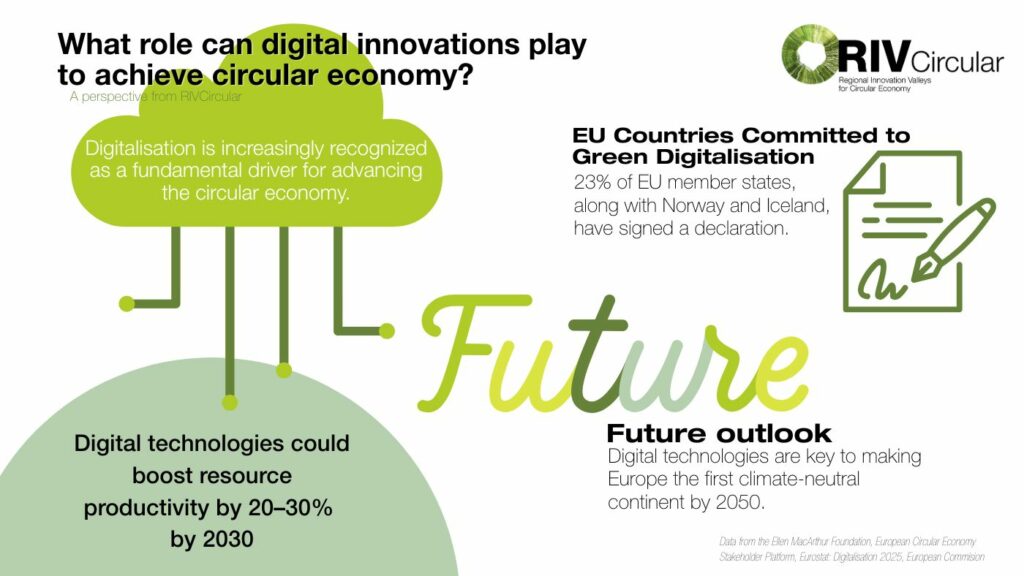Digitalisation is increasingly recognized as a fundamental driver for advancing the circular economy. According to the Ellen MacArthur Foundation, digital technologies could boost resource productivity by 20-30% by 2030, enabling more efficient use of materials and energy throughout the entire product life cycle.
Strategies such as reuse, rethink, reduce, repair, and recycle are being enhanced through innovations like Digital Product Passports, artificial intelligence (AI) for efficient recycling, big data analytics, and product-service systems. These digital tools make it possible to track resources, improve product design, and reduce waste, contributing significantly to sustainability goals.
EU Initiatives for a Green Digital Transition
The European Union (EU) is driving this shift through initiatives such as:
- EU Green Deal Data Space, which leverages the potential of data to support environmental goals.
- Eco-design for Sustainable Products Regulation, introducing the Digital Product Passport as a digital identity card for products, components and materials.
Moreover, AI adoption is growing rapidly. In 2024, more than 13% of businesses in the EU used AI technologies, compared to 8% in 2023. Its use is more prevalent among large businesses (41%) than SMEs (13%). The most common applications include written language analysis (7%), language generation (5%), and speech-to-text conversion (5%). Denmark leads the EU with 28% of businesses using AI, followed by Sweden and Belgium (25%).
EU Countries Committed to Green Digitalisation
A total of 26 EU Member States, along with Norway and Iceland, have signed a declaration to accelerate the use of green digital technologies for the benefit of the environment. These commitments focus on:
- Creating a digital twin of the Earth to monitor climate change.
- Deploying green digital solutions to optimize resource efficiency, reduce pollution, and support biodiversity.
- Developing energy-efficient AI and smart mobility systems.
- Using digital product passports to track and trace products for better circularity.
- Promoting eco-designed products and green public procurement.
- Supporting European green tech start-ups and SMEs through EU funding.
- The signatories regularly assess their progress and share best practices to implement the declaration effectively.
Future Outlook
Climate change and environmental degradation pose an existential threat to Europe and the world. Digital technologies are key to making Europe the first climate-neutral continent by 2050, in line with the European Green Deal. By improving energy and resource efficiency and enabling circular practices, digitalisation supports climate action while also driving innovation and economic growth.
With this approach, the RIVCircular project empowers capacity-building in digitalisation and sustainability, supporting initiatives that foster innovation and lead the way to a more circular future
Sources:
- The role of digital innovations in the circular economy
- Eurostat: Digitalisation 2025
- EU countries commit to leading the green digital transformation

